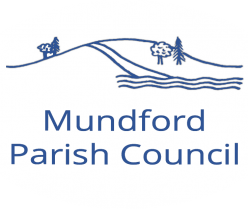Police are urging
residents to be vigilant to cold callers claiming to be police officers
following two incidents in south Norfolk.
It follows two incidents
in Wymondham and Chedgrave where elderly residents were cold called on the telephone
by a man claiming to be a police officer.
The first incident
happened yesterday (Thursday 21 November 2019) when a resident in Chedgrave was
called by a man claiming to be a police officer from Hammersmith Police. They
stated the victim’s bank account had been hacked and that money needed to be
withdrawn by the account holder to rectify it. The victim went to the bank
where staff intervened and no money was taken.
A second incident was
reported to police earlier today (Friday 22 November 2019) in Wymondham when a
woman received a cold call from someone claiming to be a detective from Norfolk
Police. The man asked the resident to confirm her address, which she did. The
woman’s carer then took the call and asked the man to provide his collar number,
at which point the call was terminated.
Detective Sergeant Chris
Archer said: “This is a known method used by suspects to commit frauds and
encourage vulnerable victims to withdraw large sums of money from their
accounts.
“Fortunately, no
money has been handed over in either incident but we clearly want people to be
vigilant to such scams.
“Genuine police
officers or staff would never approach residents and ask for cash withdrawals
to be made or for people to purchase items on their behalf.
“I would ask people
with vulnerable relatives, friends or neighbours to make sure they are aware of
this type of scam.”
Officers have this advice:
· Never give out personal
information about your bank account to anybody over the phone.
· If someone calls claiming
to be a police officer, ask for their identification number and police force.
Hang up and call 101 using a different phone. If you can’t use a different
phone, wait at least five minutes before calling back. A genuine police officer
will not mind waiting while you check.
· Police and banks will
never ask you to give out personal details such as account numbers or PIN
numbers.
· If you have given out information which could
compromise your bank account security in any way, call your bank to cancel your
cards as soon as possible.
Never hand over money to
someone at the door to be sent off elsewhere.
Anyone
with concerns about such calls should contact Norfolk Constabulary on the
non-emergency number 101 or 999 if a crime is in progress. Alternatively,
contact Action Fraud on 0300 123 2040.
